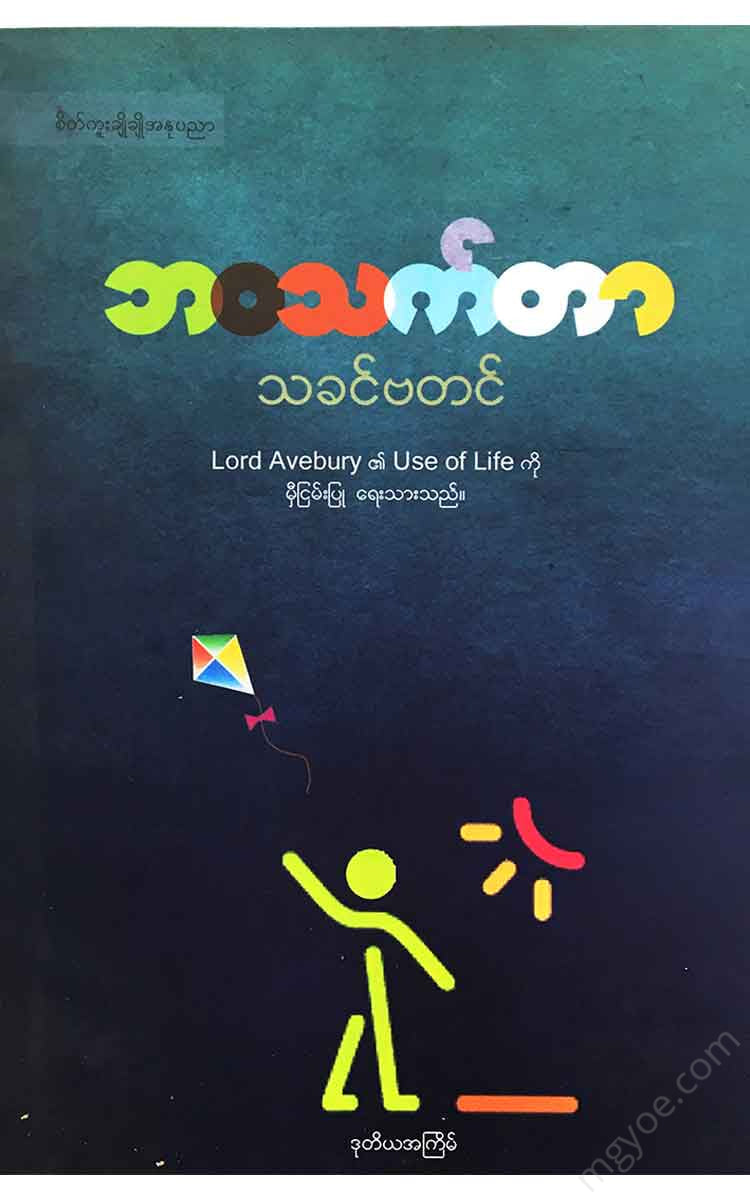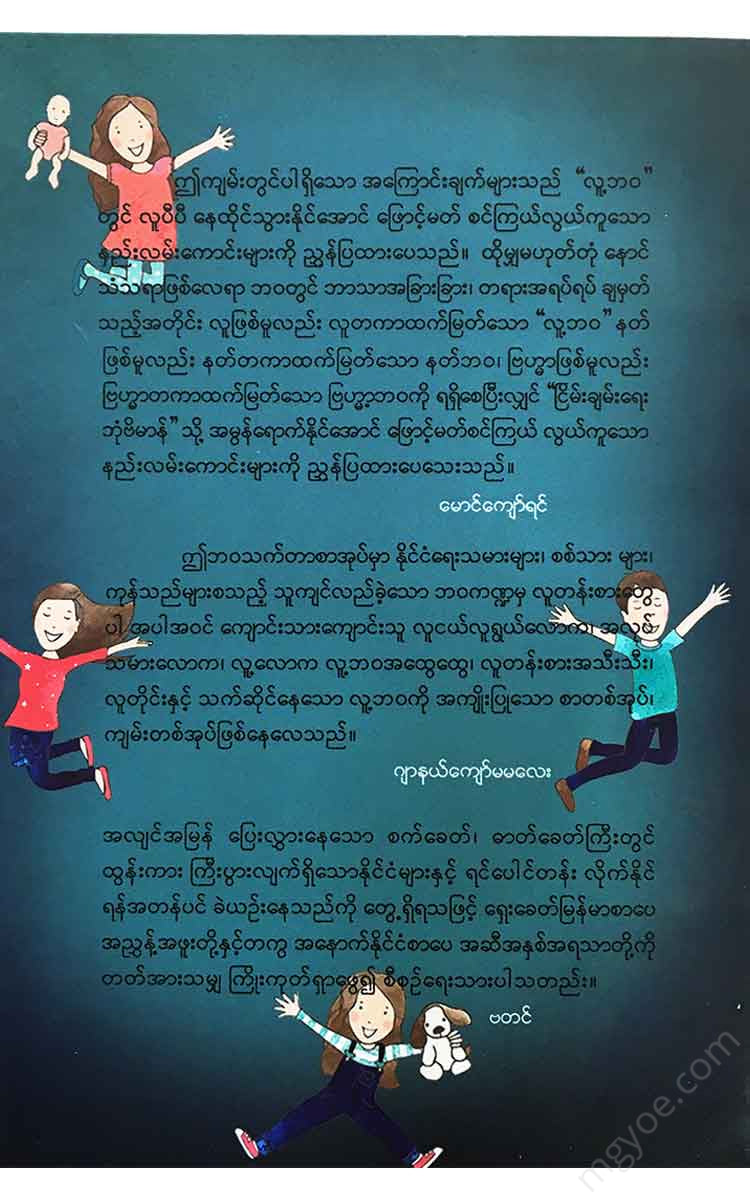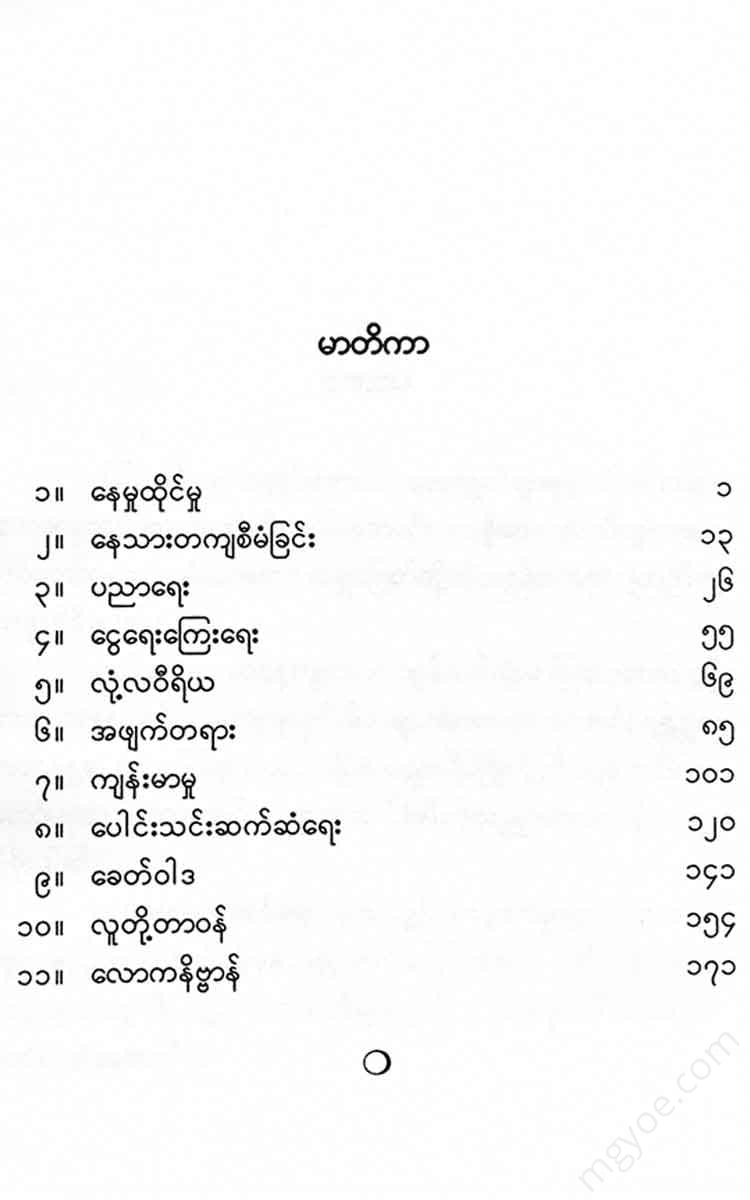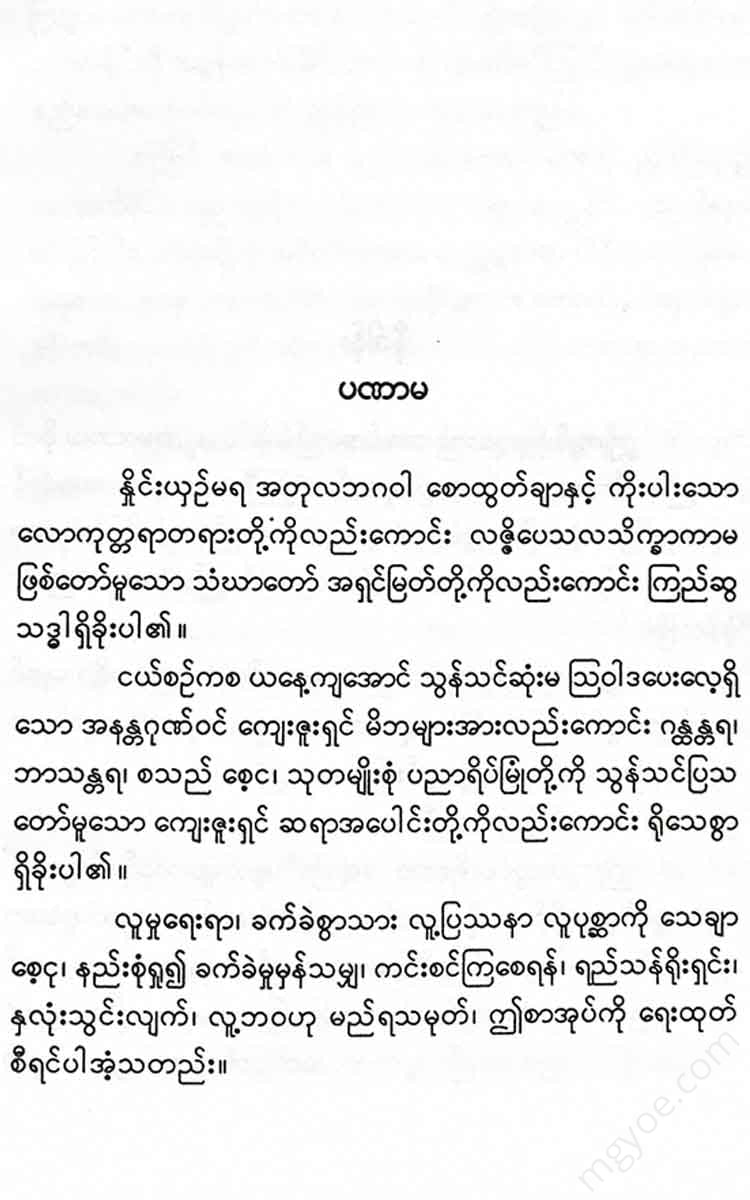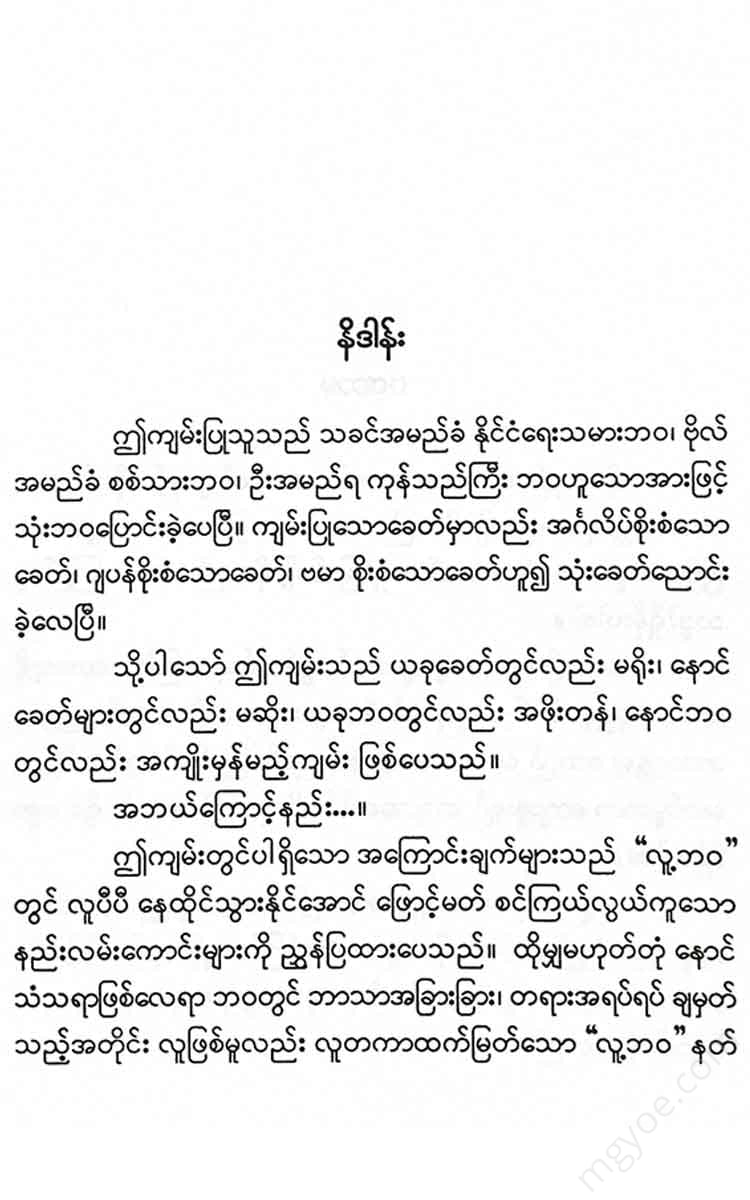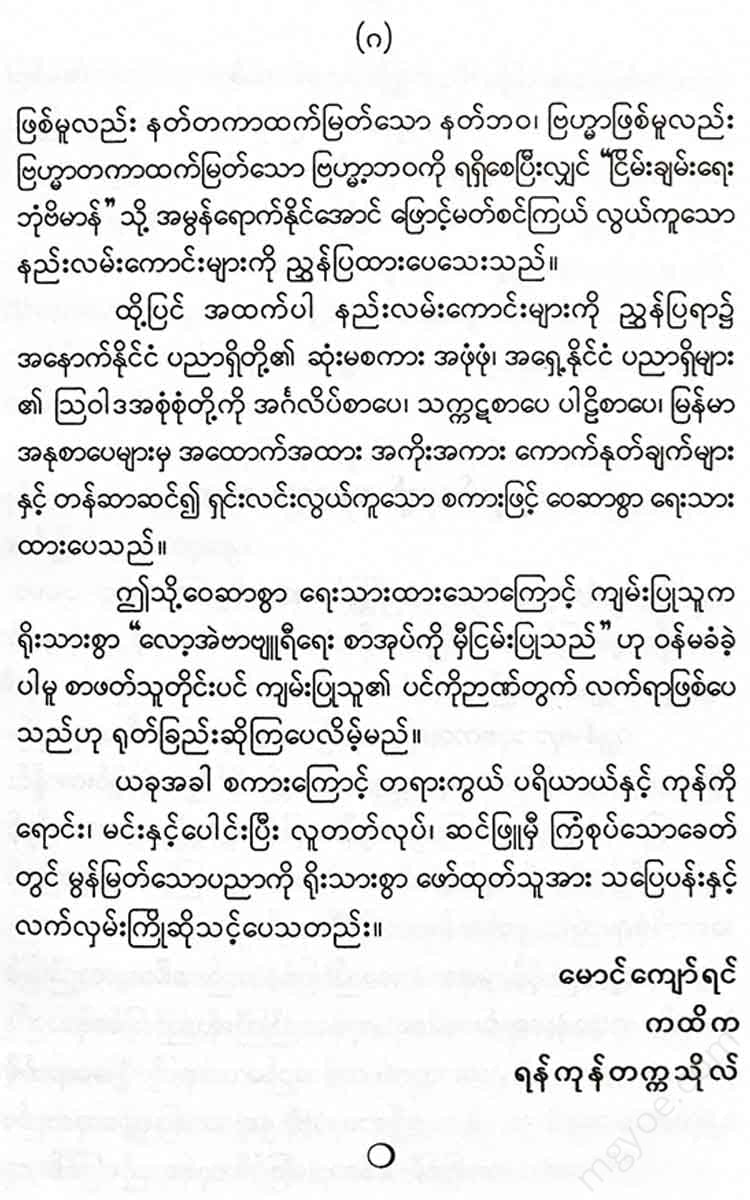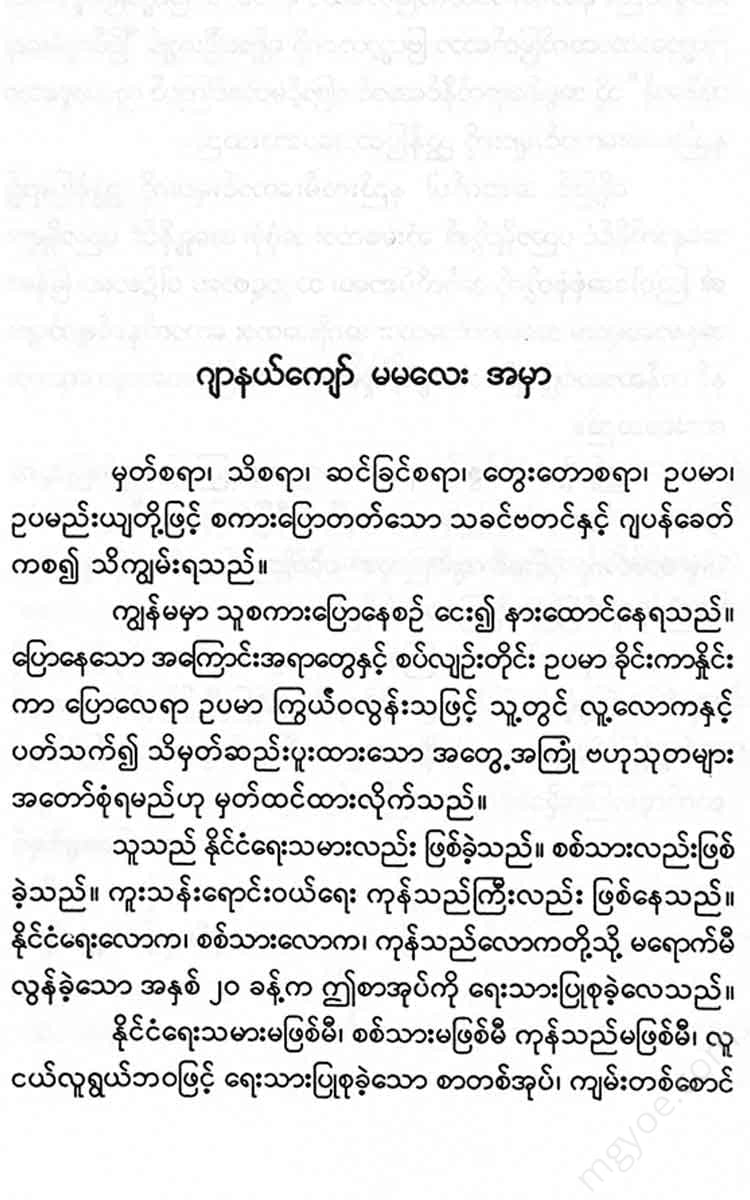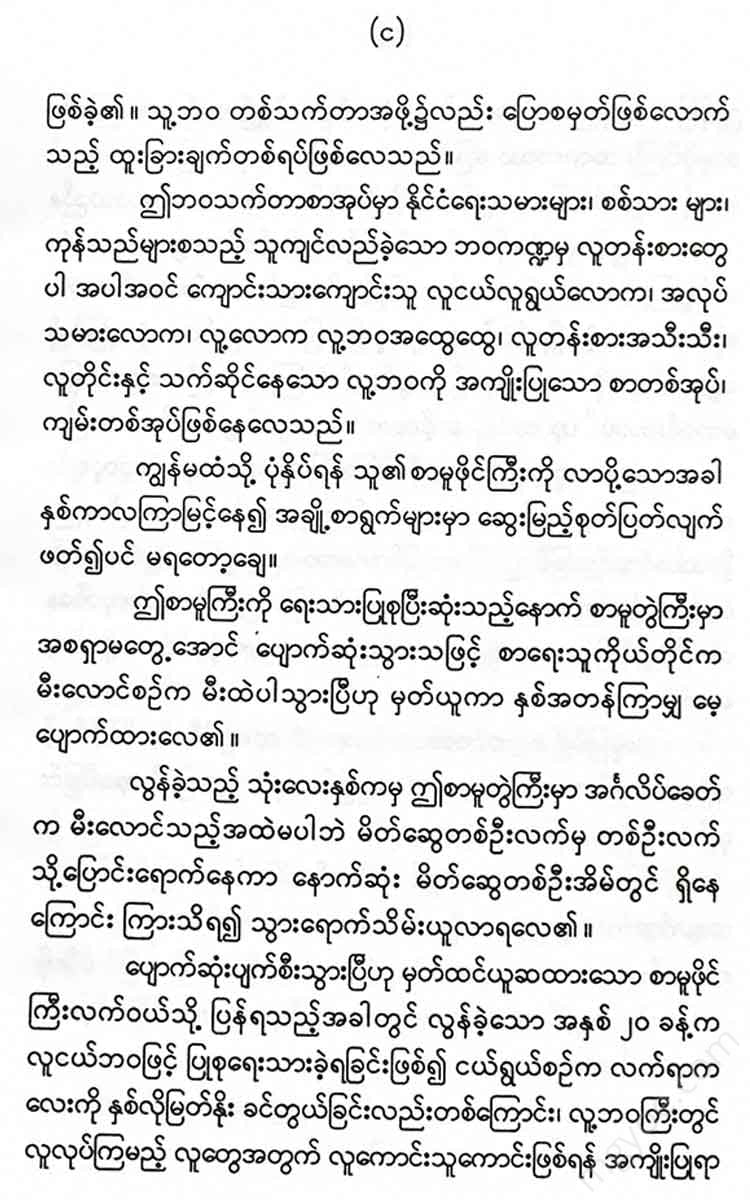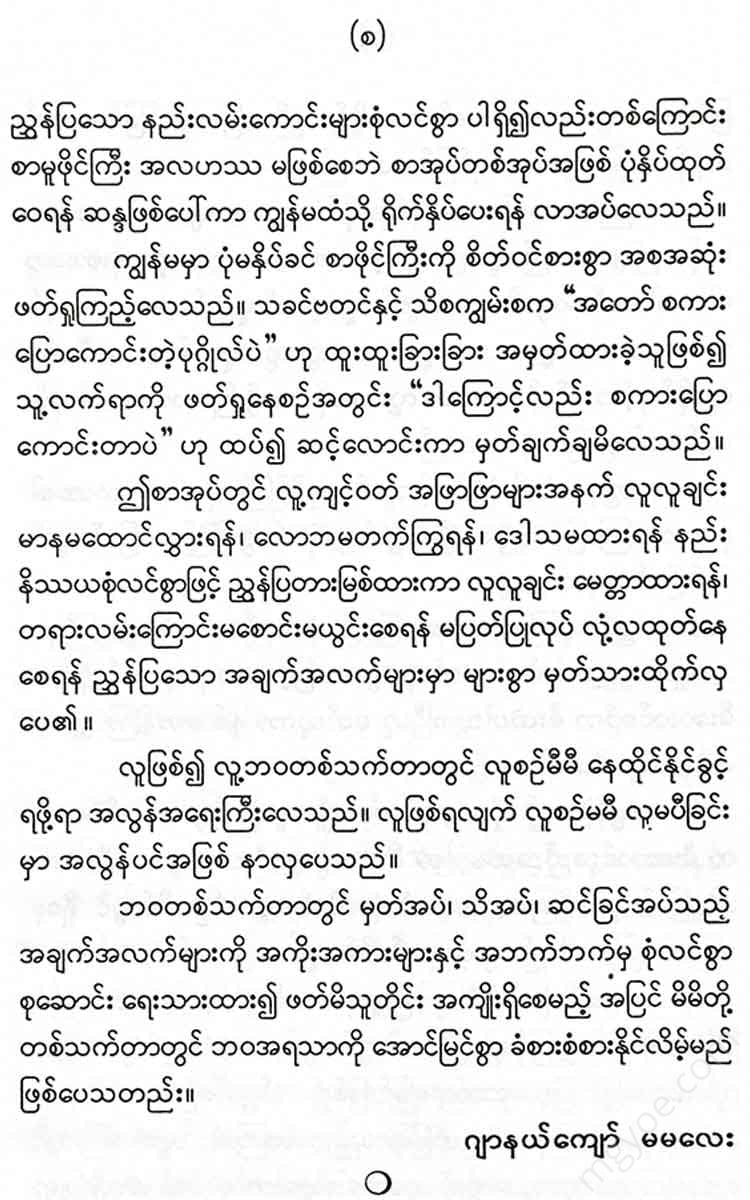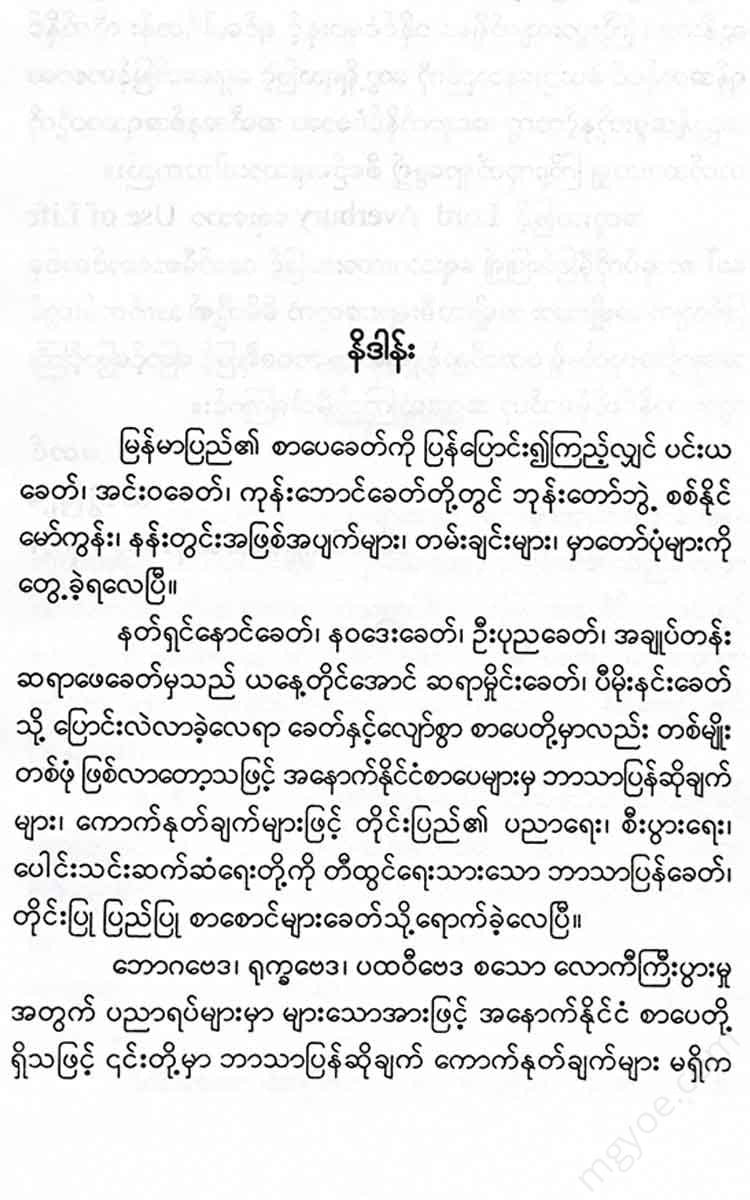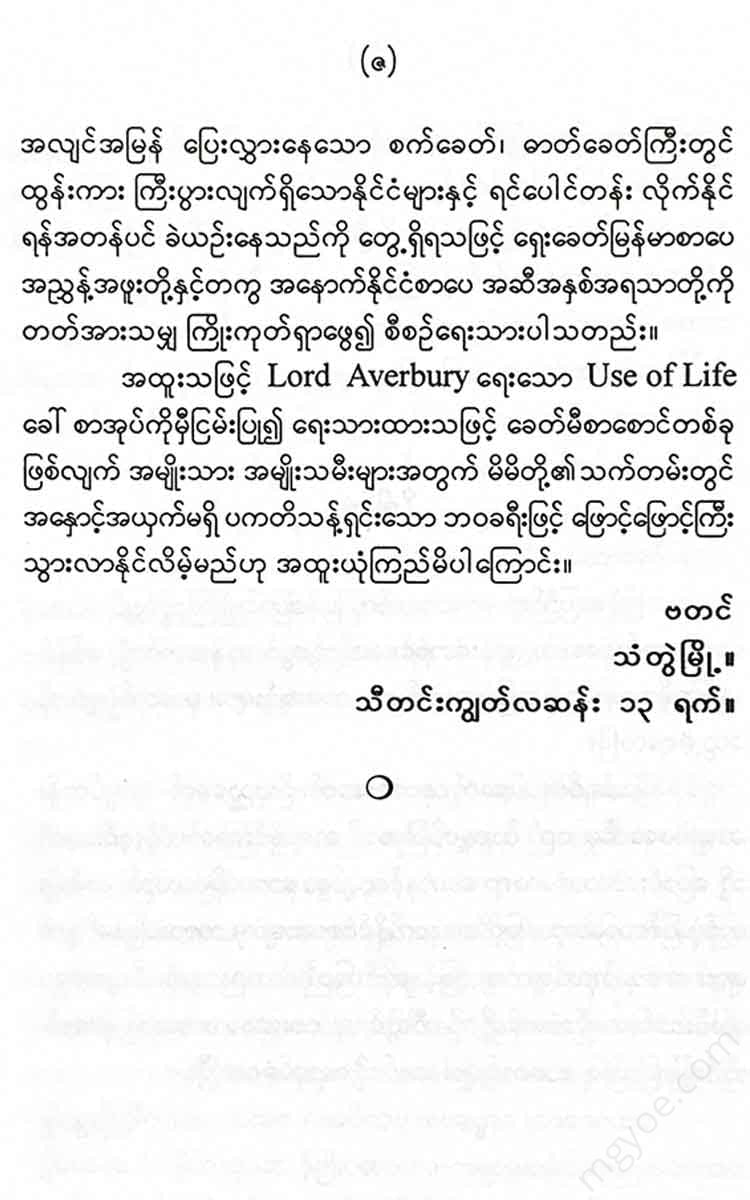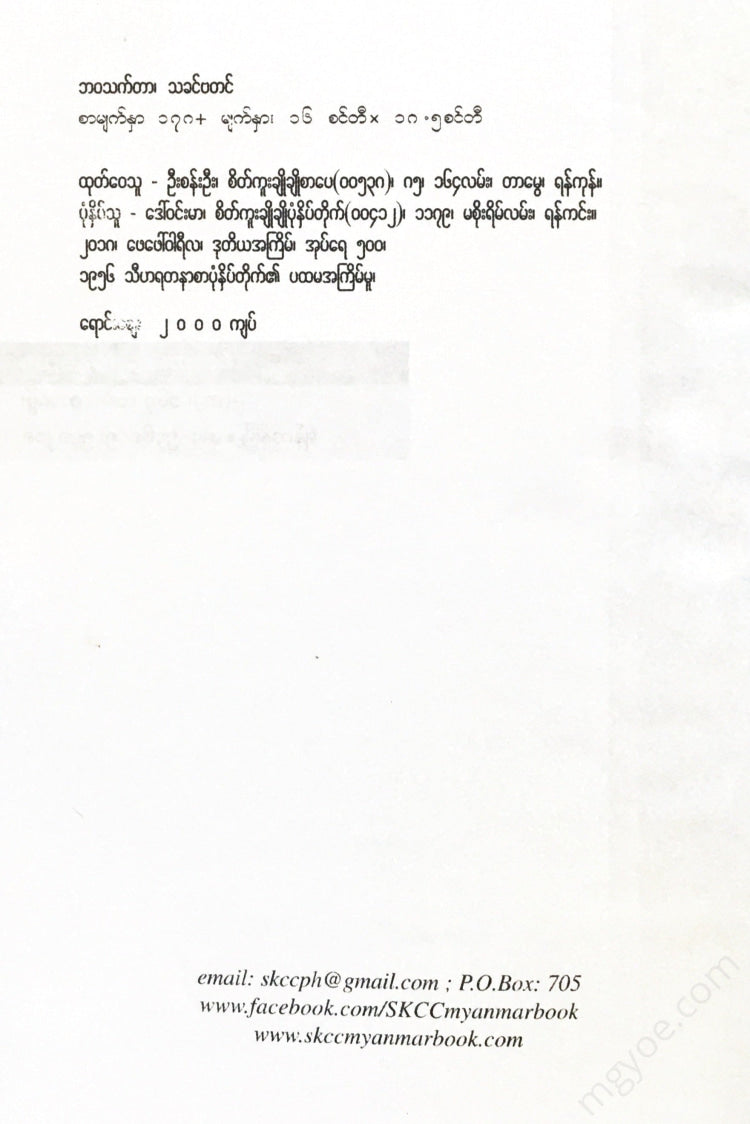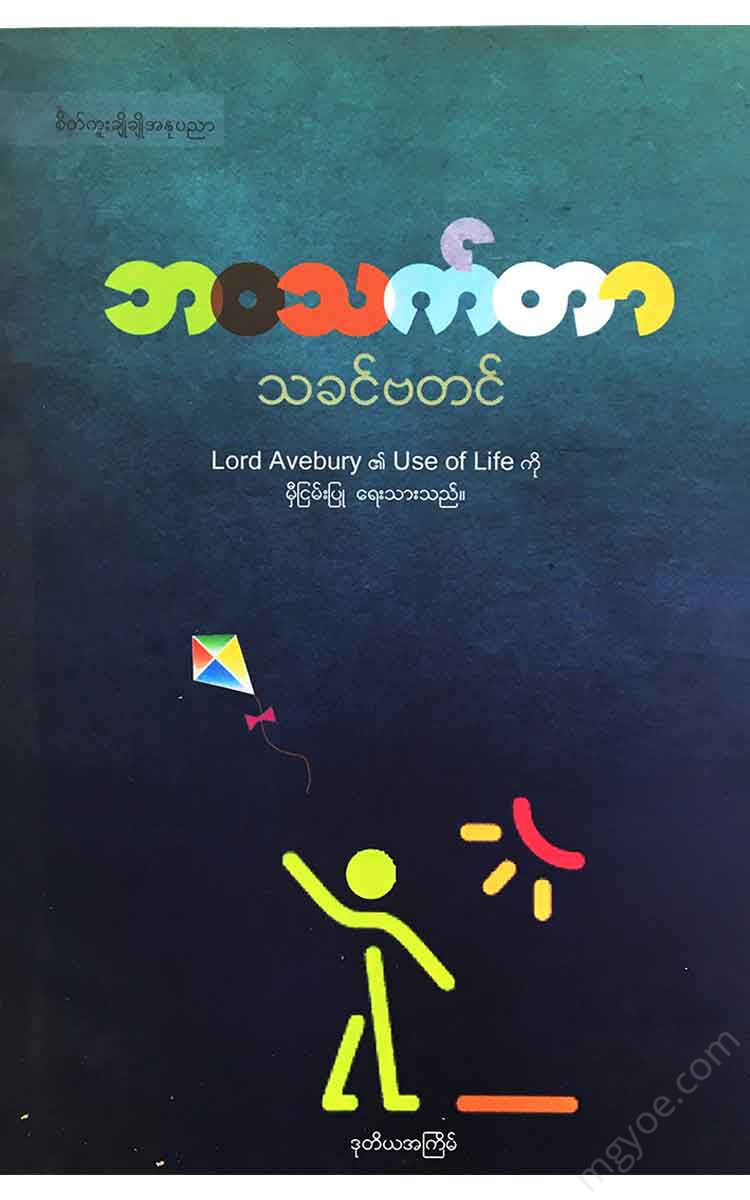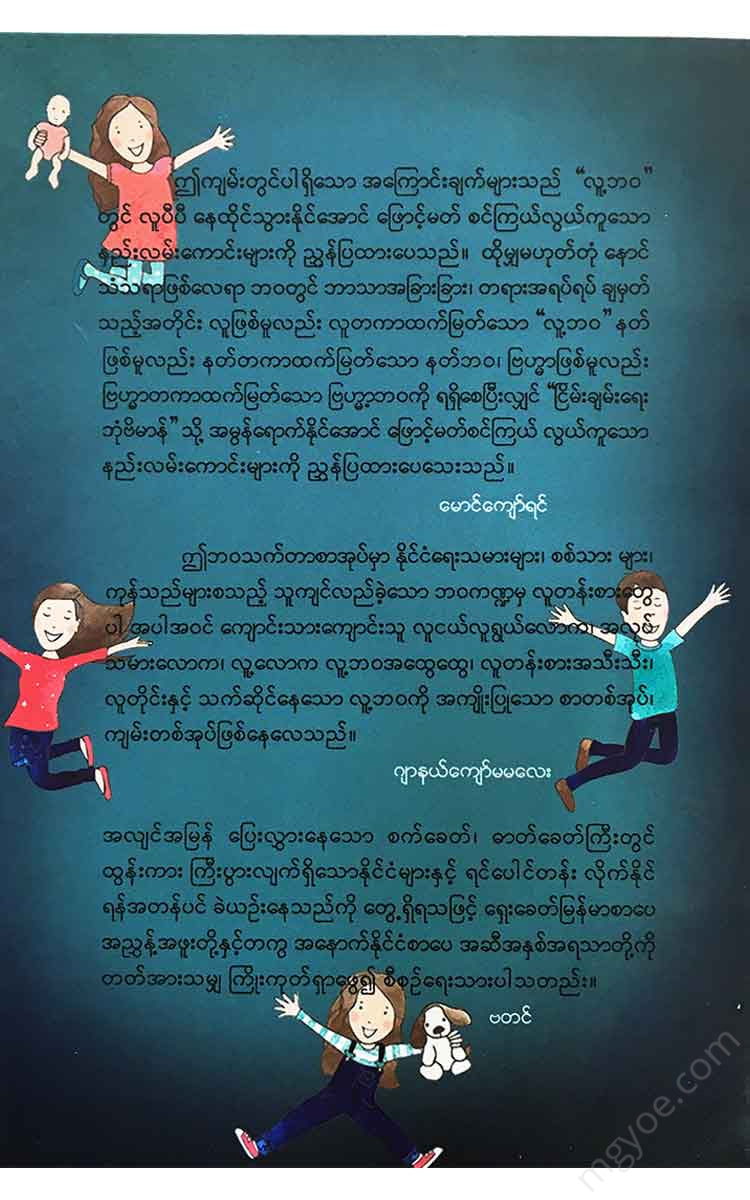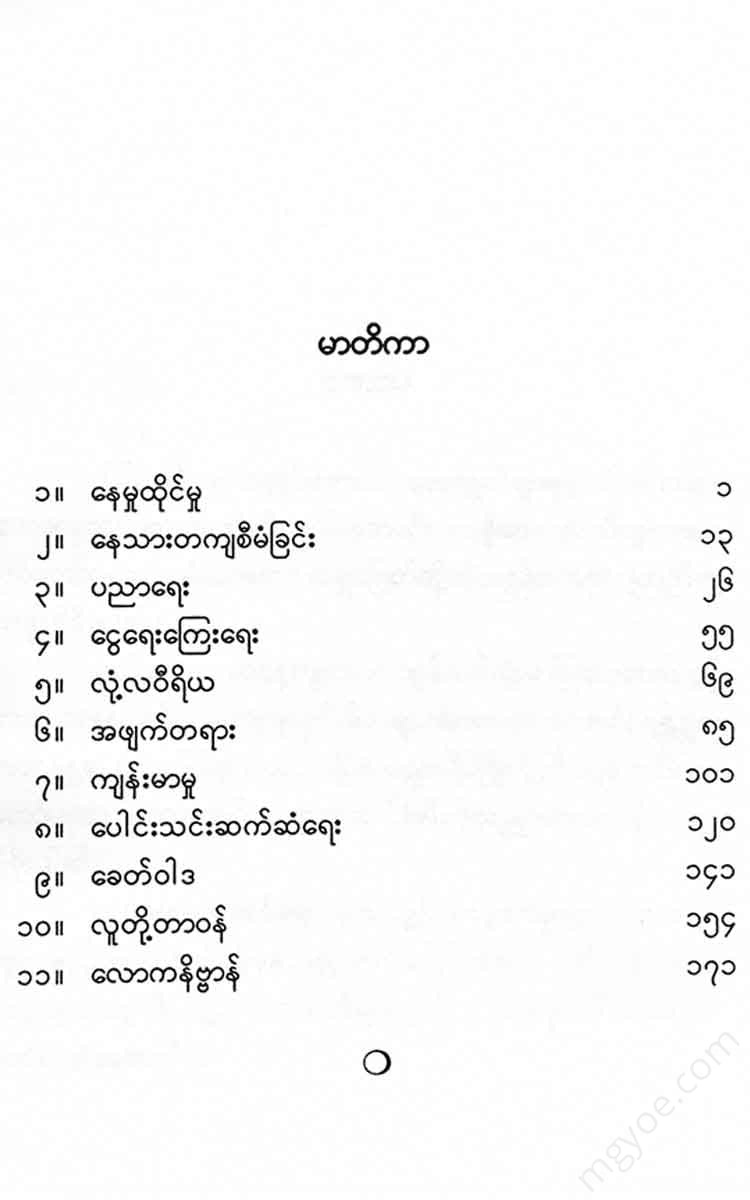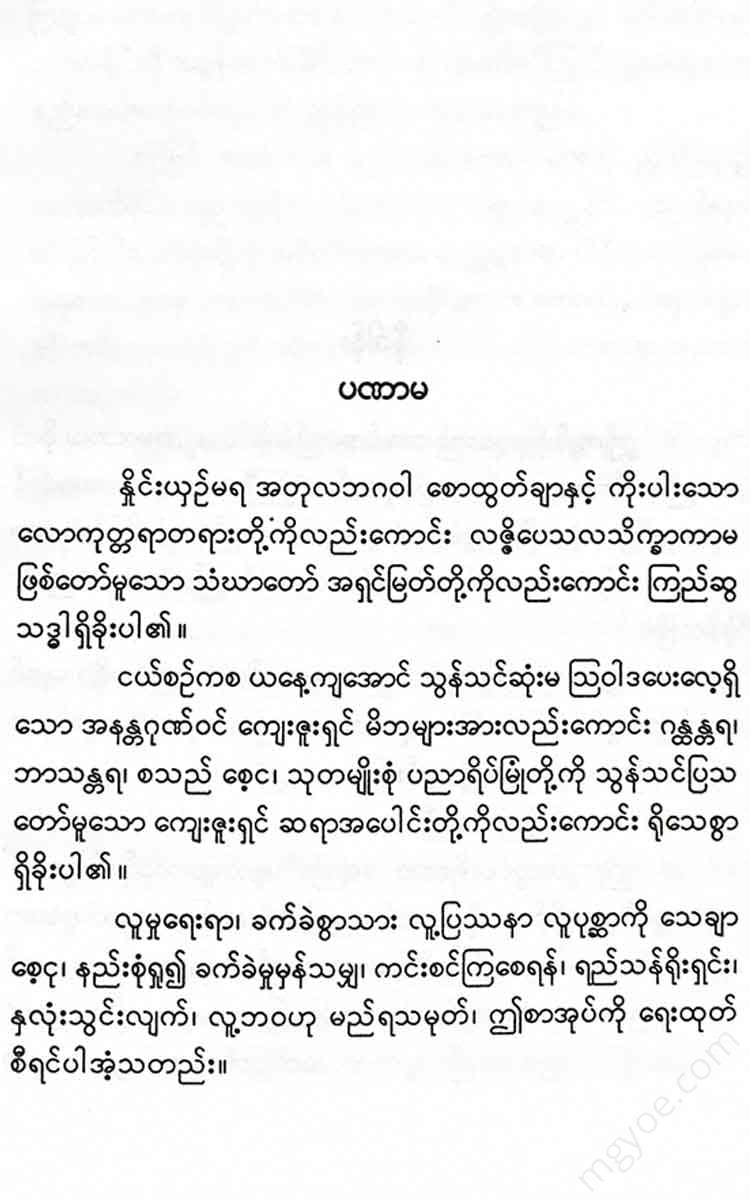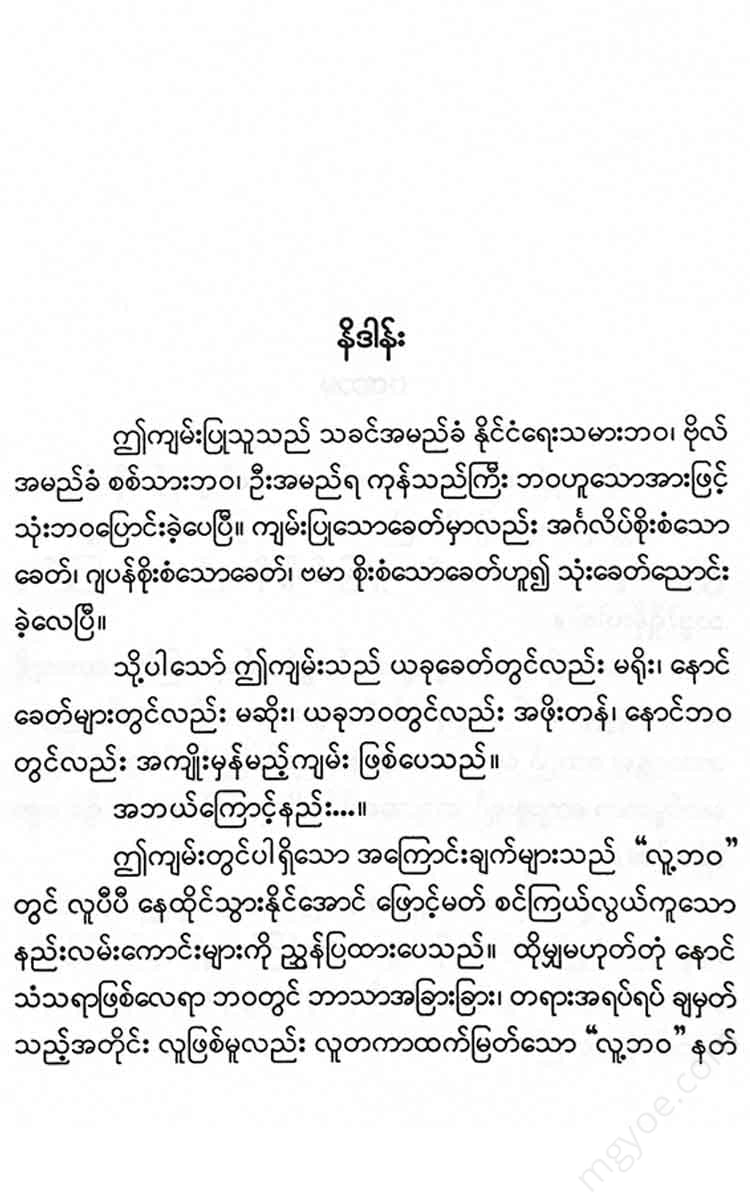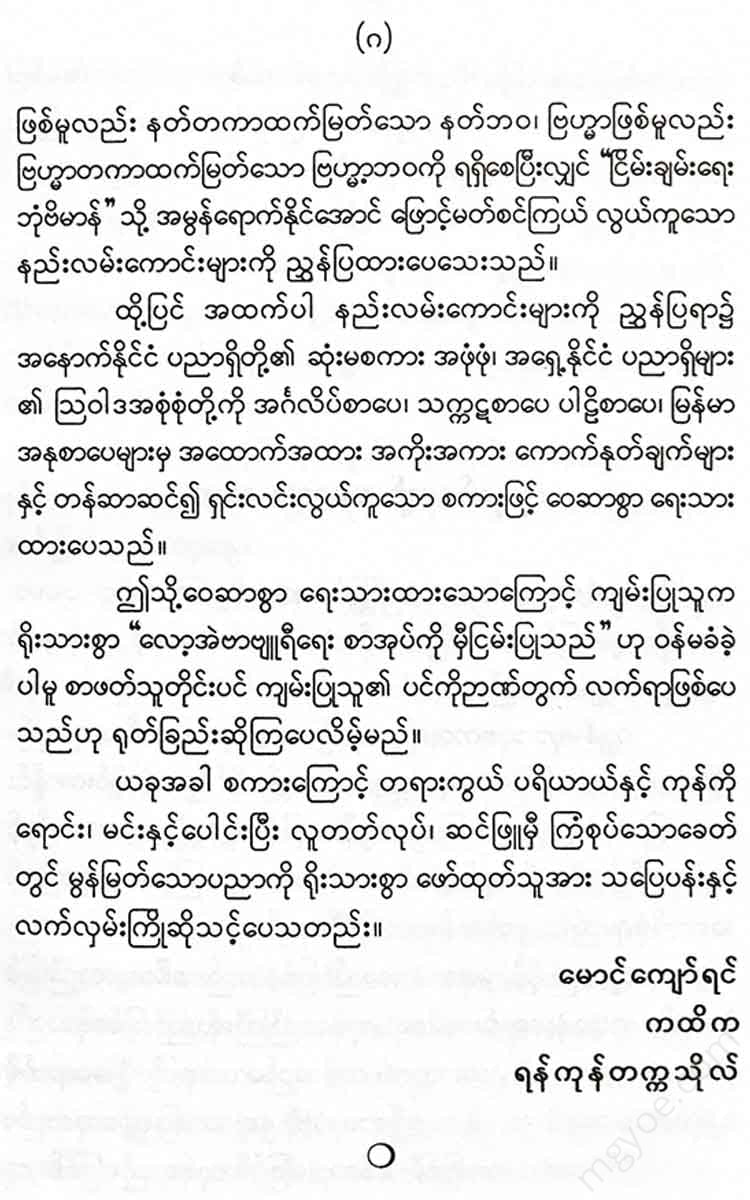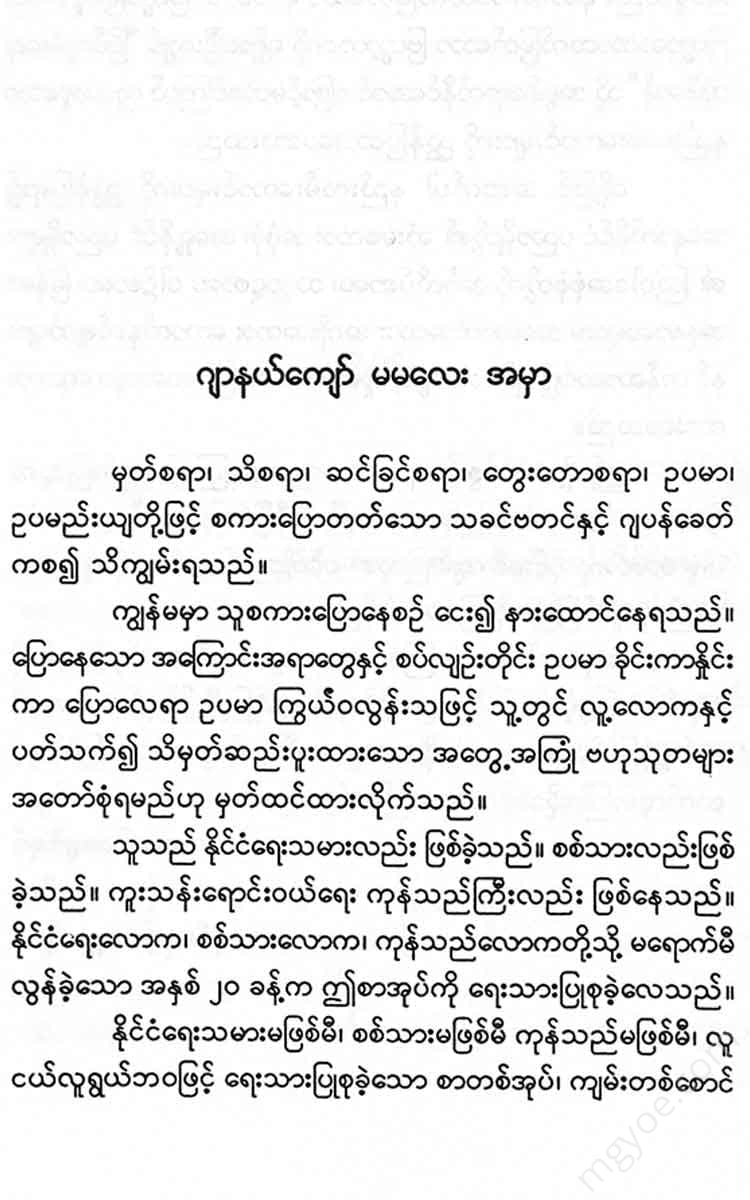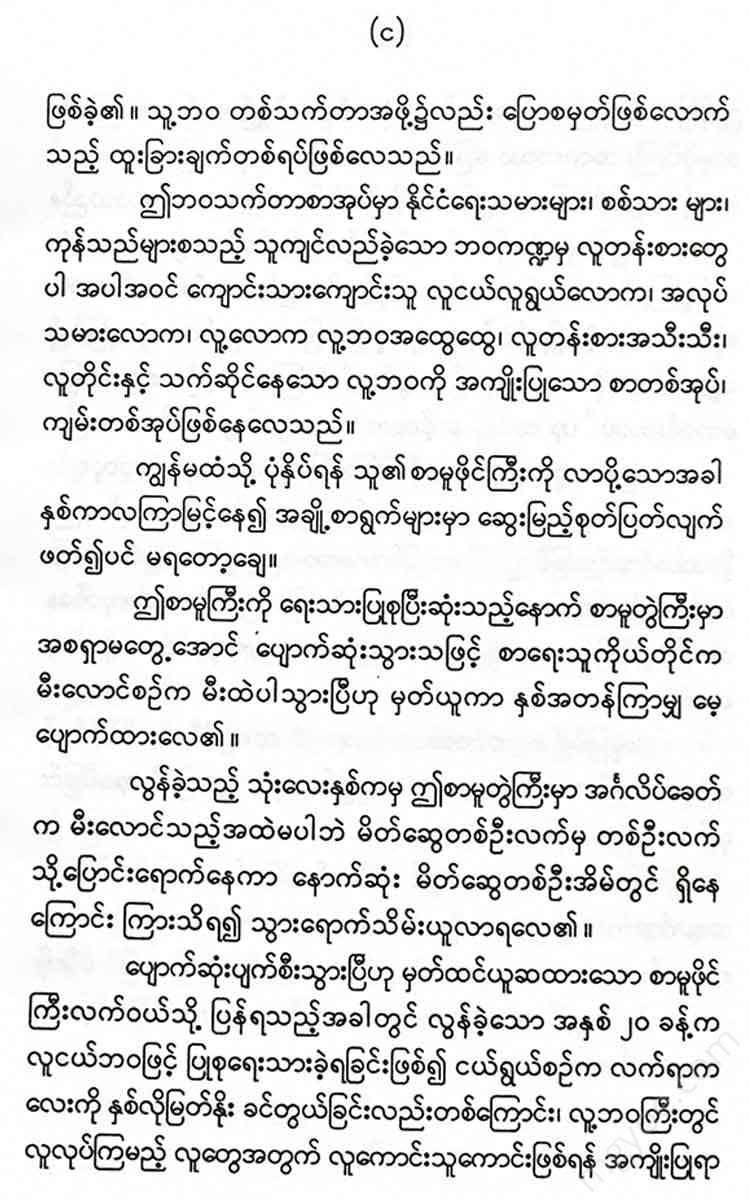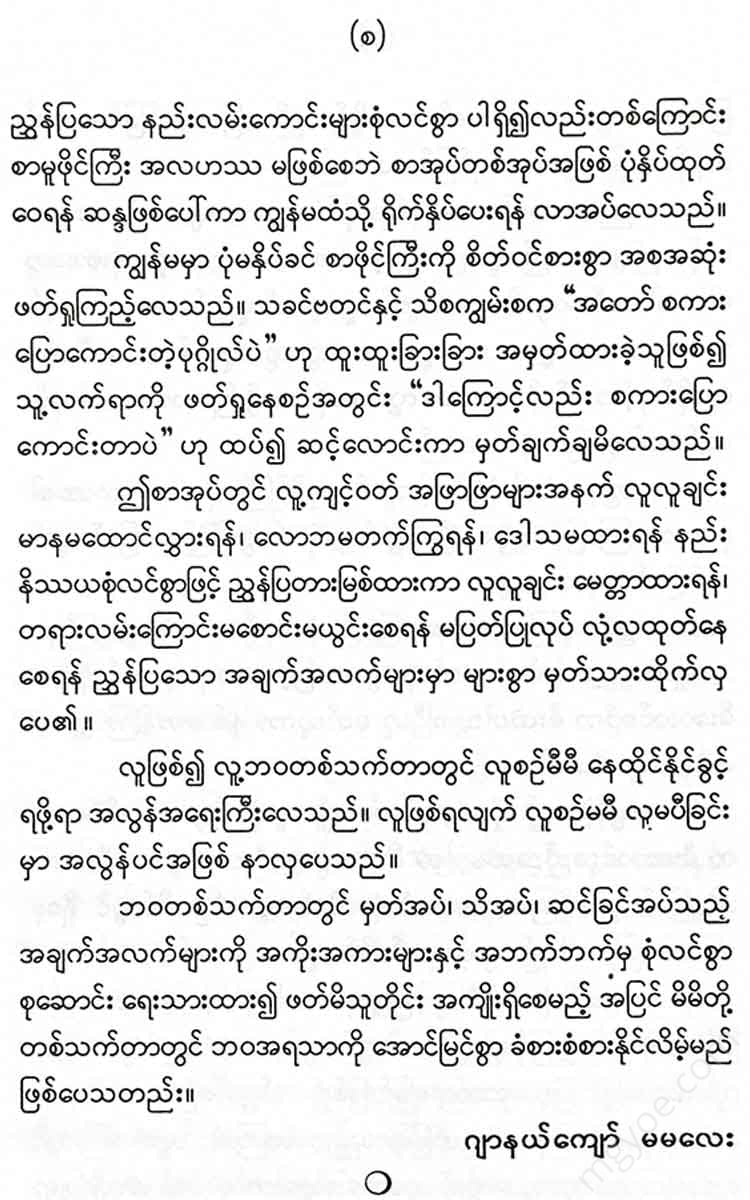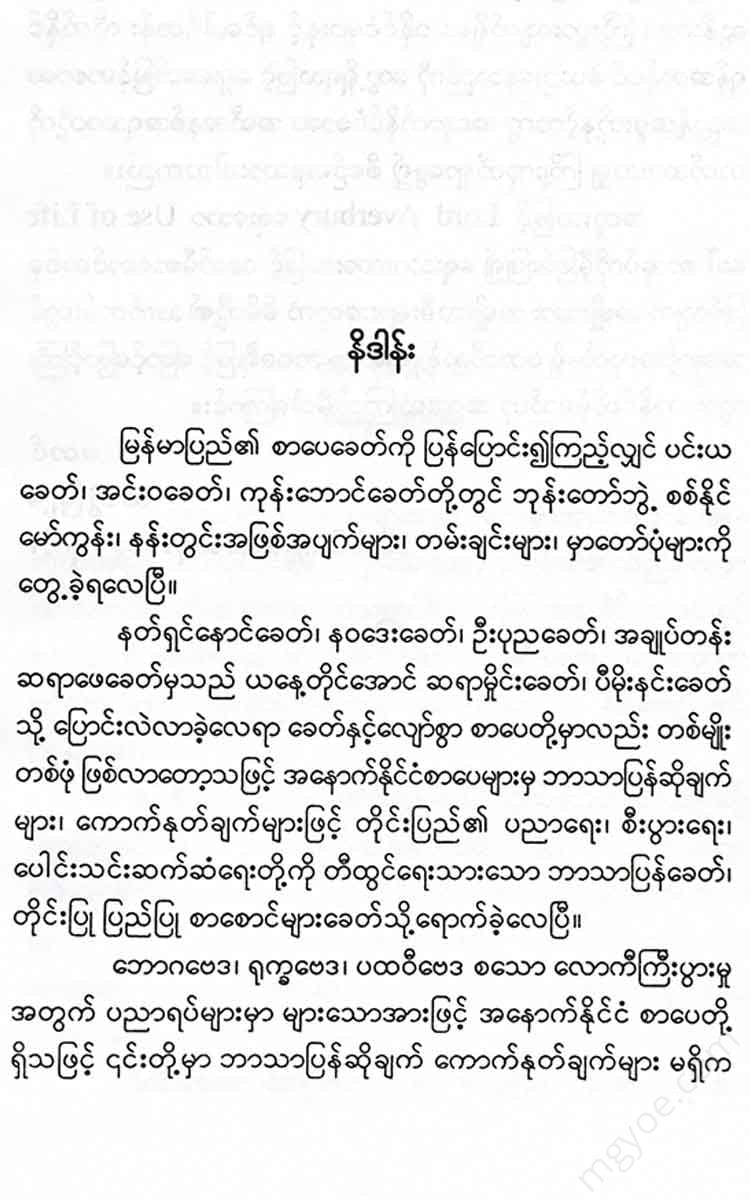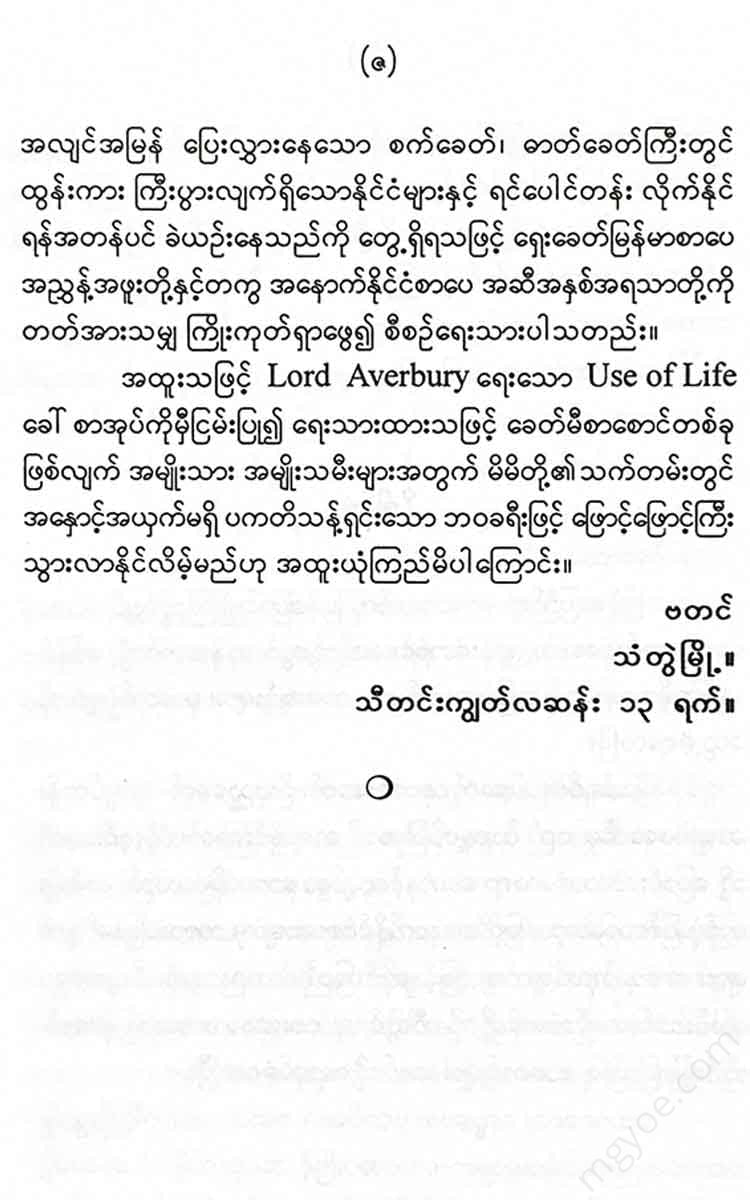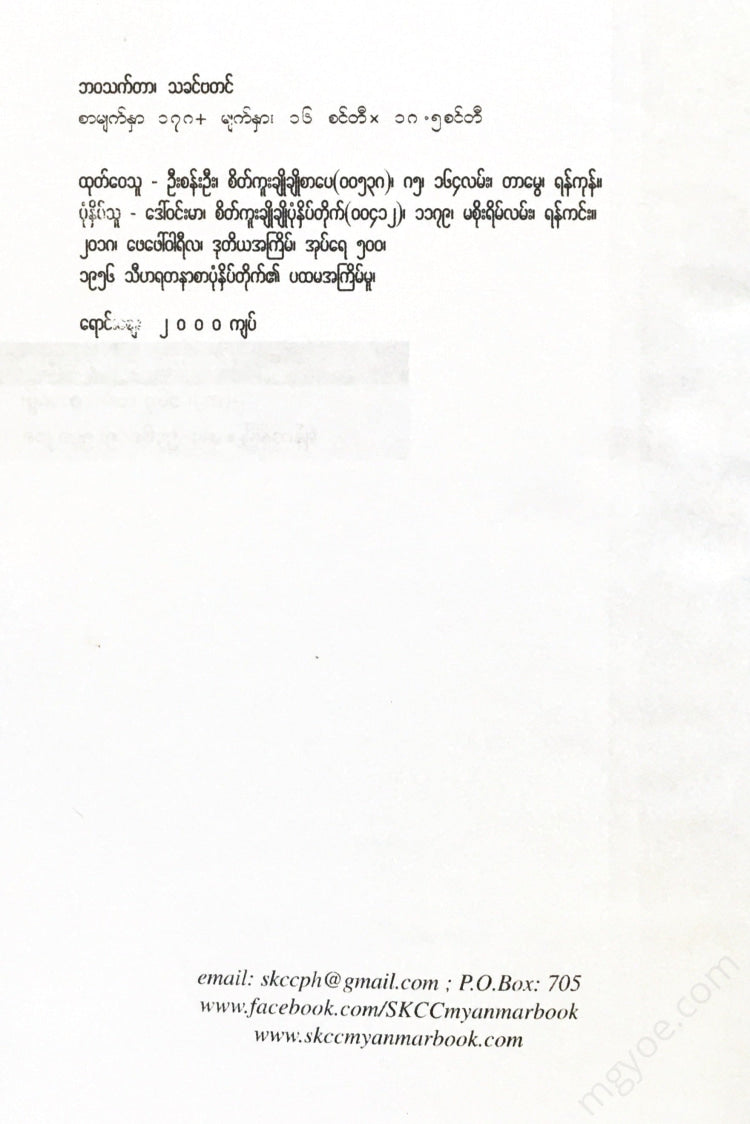စိတ်ကူးချိုချိုစာပေ
Thakin Ba Tin - Life is a journey
Thakin Ba Tin - Life is a journey
Couldn't load pickup availability
Social life is very important. It is necessary to know exactly where to stand and where to sit. Humans are social creatures, so they do not shy away from company. There is a traditional way of life that requires people to be with each other, but they have to carefully choose their friends.
Just as there are friends who are worthy of companionship and wives who are worthy of companionship, there are also friends who are not worthy of companionship and wives who are not worthy of companionship and living apart. There are many teachers who are worthy of devotion and teachers who are not worthy of devotion, disciples who are worthy of support and disciples who are not worthy of support.
The characteristics of good friends, the characteristics of bad husbands, the duties of a teacher and a disciple, etc., have been explained in detail in the worldly scriptures, and will not be written here. Those who associate with one only seek their own interests, have no compassion or sympathy for others, are one in prosperity and another in poverty, do not feel the same way about others, and are prone to abandon others when they are in trouble or when they see no benefit in themselves, should be kept far away.
Those who have such bad intentions are dishonest people who seek personal gain while pretending to benefit their friends.
Even if he has to lie, speak falsely, pretend to be a businessman, show off, seek to deceive, be cunning, be devoid of love, be like a dog, be not separated from others, be not avoided, be not far from others
Gambisara Pooja: The Maharathasara said that false friends, who are intimately acquainted with one's inner affairs, can actually do harm if they are made to do so, and can be more successful than enemies who do not know one's inner affairs. This is why the proverb was coined: "A false friend is worse than an enemy."
There are many different rituals that people must perform during their long lives.
Lite is short, art is long, opportunity fleeting,
experiment uncertain, and judgment diffieult
Hippocrates
A great sage named Hippocrates said in his book, "Life is short, wisdom is long, opportunity is fleeting, trials are uncertain, judgment is difficult."
Happiness and success in life do not depend on our circumstances, but on ourselves. As the saying goes, people destroy themselves more than they destroy others. Houses and cities are destroyed more by human hands than by storms and earthquakes. What destroys a mango is the worm inside it, and what makes a person sick is the 80 kinds of worms in the stomach.
There are two kinds of destruction: destruction caused by time and destruction caused by man. Of all the destructions, destruction caused by man is the most destructive. Moreover, man's worst enemy is his own inner self.
We must adjust ourselves to the environment. We do not need to adjust the environment to us.
As long as people depend on their parents, relatives, friends, etc., they do not think that social life is difficult. They are like a shrub that grows on a tree. Only when the tree, which is their support, falls, do they become dependent on the other person, who breathes through the nose of others, and they find themselves face to face with the difficulties of life, such as living, clothing, and other necessities.
The responsibilities of being a married man are much greater than those of being a young man. There are many things to consider, such as the care of children, the care of parents, the care of in-laws, the care of neighbors, the care of relatives, the care of the country and the nation, the care of monks, Brahmins, and the care of the monks, the care of friends, teachers, and students, the care of religion, education, and so on.
“They say, ‘Gharavasa, Sammādha,’ ‘Mingya,’ ‘Among the affairs,’ ‘Among the people,’ ‘Marriage, birth, children, social affairs, human affairs.’”
The place where people live is also important. They should not live in places where worldly interests do not flourish, where worldly benefits do not flourish. Only by living in places with large trade, ports, railways, and highways can they develop and prosper. If they live in remote places, at the end of cart paths, or in places where there is no entry or exit, their business ideas will be low and their desires will not develop and will gradually become weak. The eyes of wisdom that can see the path of business will also become dim and narrow, and they will not be able to see the path of growth and development, the right path, and they will continue to live in the same way, and they will lose their lives like the habits of barbarians.
In this era of global trade, people are struggling to make ends meet, so choosing a location is even more important. Even in the same city, houses on busy streets, near markets, at the intersection of roads, railways, and ferry routes, are four to five times more expensive than houses in poor traffic. A small shop in the center of trade can quickly grow, but living in a large house on the outskirts of the city will have no other benefits than high rents.
In addition, only by choosing to live in a place where one is interested in one's own benefit, where one has a noble attitude and knows one's own benefit and the benefit of others, can one develop one's own benefit by imitating the habits of good people. The Buddha, who wanted one to live in such places, preached the Dhamma of the right place. The right place means to live in a place that is suitable for one's surroundings. This fulfillment of place is called the right place and the right place. One should not live in a place where one has no friends or associates who are friendly and friendly, where one is hostile and hateful, where one has many ill-wishers, where there is a lot of danger of disease, where there are unscrupulous people and fools, because they will suffer a lot.
Just as a hunter is near a hunter, a fisherman is near a fisherman, the bad habits of those around him tend to be transferred to his own form, thus diminishing the benefits of the present cycle. That is why the wise have said, “The bitter river is a barrier, the thorny tree is a barrier, the mango tree is a barrier, the fruit is sweet.”
The great brahmin teacher, who is a monk, said that it is not appropriate to live in such bad places, places that are incapable of producing worldly wealth and spiritual wealth.
"The places of evil and evil are those of the wise, the wise, the wise, the wise, they are to be removed far and wide," he said.
People make their own lives worthless. They waste their lives by cultivating jealousy, committing sins without investigation, seeking only their own interests, living disorderly, getting into debt, overeating, and neglecting their health.
The Buddha taught the Dhamma of food moderation, which is not to indulge in excessive indulgence in anything, and to know the measure of food.
Courage in excess becomes foolhardiness,
affection weakness, thrift avarice.
Lord Avebury
One should maintain the middle way of life, neither too strict nor too loose. If one uses everything too strictly, one's strength and courage will become foolish. Being careless is weakness. Being frugal becomes greed, says the Avicenna (1).
Human life is neither a bed of roses nor a battlefield. We make life ugly by longing for what we cannot have, by grieving for what we cannot avoid, and by talking about what we do not understand. We waste it.
There are two kinds of life: a good life, a (faultless) righteous life, and a bad life, a (unrighteous) wicked life. Evil is unjust.
